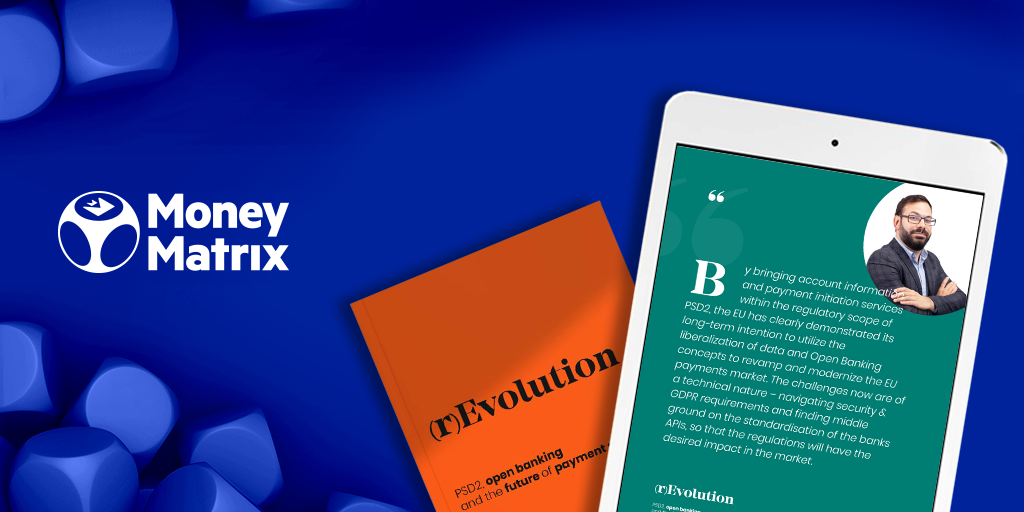
There is a consensus that the growing complexity behind scenes of the payments industry needs to be translated into simplicity for the end-users. This simplicity also needs to be reconciled with evolving market regulations, such as EU’s Second Payment Services Directive (PSD2), which brings about numerous challenges, but also extraordinary opportunities.
MoneyMatrix is delighted to have taken a first step to analyse the advantages of PSD2, by participating in the industry report (r)Evolution, PSD2, Open Banking and the future of payment services by Seed, a boutique advisory firm.
At MoneyMatrix, we believe in Making Payments Simple. To make this possible, we are more than happy to bring to the table our experience into the complex iGaming world. While our stand-alone payment solutions can cater to any industry, they were built to meet the demands of a high-risk industry, and this gives them a unique view on the market. After dealing with the rigours of online gambling payments, we have the agility to deal with the implementation of local regulations and to embrace the opportunities that they bring.
“By bringing account information and payment initiation services within the regulatory scope of PSD2, the EU has clearly demonstrated its long-term intention to utilize the liberalization of data and Open Banking concepts to revamp and modernize the EU payments market.
The challenges now are of a technical nature – navigating security & GDPR requirements and finding middle ground on the standardisation of the banks’ APIs, so that the regulations will have the desired impact in the market.” – Samoil Dolejan, CEO of MoneyMatrix
To leverage regulations such as PSD2 calls for a joint effort of fintech and payment services providers and analysts, with the common goal of bringing Open Banking to the European markets and, ultimately, to the rest of the world. And this where analyses such as the (r)Evolution report can make the difference, creating synergies between the actors of this industry.
The report interprets the results of a survey with almost 20 respondents from leading credit and financial institutions. It addresses the swift transformations taking place in the banking and payments sectors, also focusing on the rapid ascension of payment services providers, fuelled by tech innovation.
Driven by technological progress and regulations, the current changes are only the beginning of the profound transformations that will soon take place. Since 2015, EU has been aiming to create a Digital Single Market, and, to this purpose, it introduced PSD2 to deal with consumer rights, heighten security and regulate Open Banking. By the end of 2020, it should pave the way for third-party providers to offer apps and services around financial institutions via open APIs.
Seed’s report seeks to dive into the effects, challenges and opportunities of PSD2, with focus on Malta as a regional hub of the financial services space. It takes a look at what PSD2 is and its main highlights, followed by a deep dive into the concept of Open Banking and how PSD2 challenges traditional banking due to its disruptive potential. In the end, the report envisions a cashless, data-driven future of payment services, as well as more engaging and with reduced costs.
And, above all challenges, PSD2 shows significant potential to become a competitive advantage, especially for local credit and financial institutions that remain agile and form partnerships that give them access to an extensive portfolio of payment methods, risk management and verification solutions.
You can read the report here.




